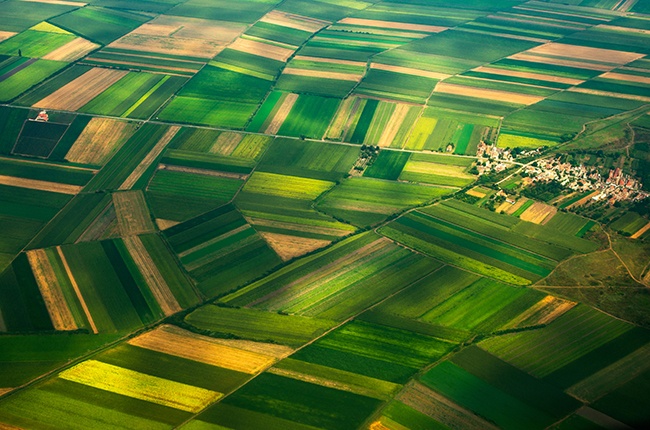The increase of mega-cities in certain regions of the world is almost certain to eliminate huge areas of farmland that are critical for food production by 2030 and could have severe implications across the world, according to a study by an international team of researchers that includes a Texas A&M University professor.
Burak Güneralp, research assistant professor in the Department of Geography, and colleagues from Germany, New Zealand, Sweden, Austria, the University of Maryland and Yale University have had their work published in the current issue of the PNAS (Proceedings of the National Academy of Sciences).
The study shows that some urban areas that are located near key farmland producing regions will triple in size, resulting in huge implications on agricultural systems already affected by rising populations. Africa and parts of Asia are most likely to feel the major impacts of declining farmlands, but other regions of the world could also be affected, the study shows.
One major worry: about 60 percent of the world’s irrigated cropland areas are very close to major cities, and these farmlands tend to be twice as productive as other areas, the study shows. It means a loss of 3 to 4 percent in global agricultural production by 2030, the study shows, which could affect hundreds of millions of people worldwide.
The study says the key crops most likely to be affected will be rice, maize, soy beans and wheat – all of them key food sources for billions of people.
Egypt could lose as much as 60 percent of its maize and Nigeria as much as 17 percent of its rice. Overall, rice production could fall as much as 9 percent worldwide, the study shows.
“There is no doubt that urban expansion is already having a big impact on declining farmland in some areas of the world, and this problem may get much worse in the next few decades,” Güneralp confirms.
The study shows that key land losses will likely occur in Africa and Asia, especially in countries such as Egypt, Nigeria and eastern China, where some parts of China might experience as much as one-fourth of the worldwide cropland loss.
“These very fertile lands tend to be on the outskirts of major cities, and as cities expand, more land is lost,” Güneralp adds. “These are high-quality tracts of land that have been owned by small farmers who depend on access to urban food markets for their livelihoods.
He says that as cities take over these lands, it results in lost food production that these areas depend on. One solution for countries such as Egypt is trade to compensate for cropland loss; however, this could make them more susceptible to food supply shocks.
“Another potential solution for many sub-Saharan countries is opening new farmlands but that would typically result in conversion of habitats that are critical for conservation of biodiversity,” Güneralp notes.
“The loss of these critical farmlands puts even more pressure on food producing systems and shows that we must produce strategies to cope with this global problem.”
https://today.tamu.edu/2016/09/01/unmanned-aircraft-ultrasonic-tech-powers-farmers-to-higher-yields/
###
Contact : Burak Güneralp at (979) 845-6422 or cell at (979) 595-7262 or bguneralp@tamu.edu or Keith Randall, New & Information Services, at (979) 845-4644 or keith-randall@tamu.edu
About Research at Texas A&M University: As one of the world’s leading research institutions, Texas A&M is in the vanguard in making significant contributions to the storehouse of knowledge, including that of science and technology. Research conducted at Texas A&M represented annual expenditures of more than $866.6 million in fiscal year 2015. Texas A&M ranked in the top 20 of the National Science Foundation’s Higher Education Research and Development survey (2014), based on expenditures of more than $854 million in fiscal year 2014. That research creates new knowledge that provides basic, fundamental and applied contributions resulting in many cases in economic benefits to the state, nation and world. To learn more, visit http://research.tamu.edu.
For more news about Texas A&M University, see https://today.tamu.edu/.
Follow us on Twitter at https://twitter.com/TAMU






